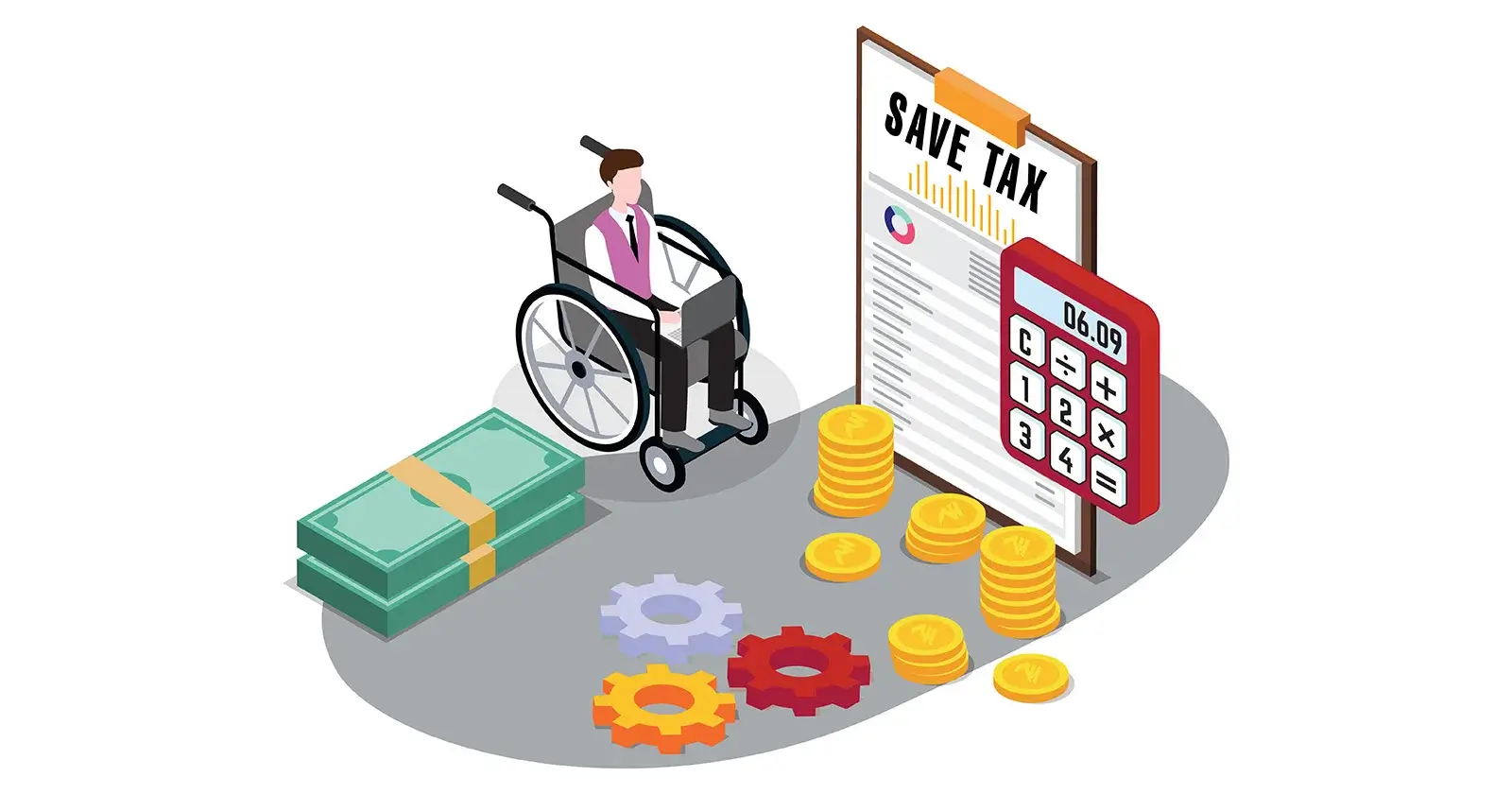Section 80DDB of the Income Tax Act of 1961 allows tax deductions to taxpayers on the treatment of certain specified diseases. According to Section 80DDB, these taxpayers are individuals and Hindu Undivided Families (HUFs). However, deductions cannot be made from either long-term or short-term capital gains.
Note: Non-Resident Indians (NRIs) are not eligible for this deduction. Only Indian residents can claim such a deduction. No other entity can claim this deduction.
There is a difference between this and deductions made for health insurance premiums (which fall under Section 80D of the Income Tax Act 1961).
What is the amount that can be claimed as deduction under Section 80DDB?
deductions under Section 80DDB can be calculated as follows :
| The age of the person receiving medical treatment | Amount of Deduction (Rs.) |
|---|---|
|
Less than 60 years of age |
₹ 40,000 or actual expenses, whichever is less |
|
Senior Citizens- Age 60 years and above |
₹ 1,00,000 or actual expenses, whichever is less |
Key Notes:
- Only expenses incurred during the previous year can be deducted.
- Moreover, when determining the deduction amount, the age of the person receiving medical treatment is used and not the age of the claimant or assessee.
- In addition to the deduction under Section 80DDB, no other deduction may be claimed under Chapter VI A.
Whose Medical Expenses Can Be Claimed Under 80DDB?
A taxpayer or dependent who suffers from a disease listed below is eligible for a deduction under Section 80DDB.
- Individual taxpayers or ‘assessees’ who undergo treatment
- Individuals or HUFs can claim it
- Resident Indians are allowed
- When the taxpayer has paid for treatment of a dependent
- A dependent is a spouse, a child, a parent or a sibling
- Where a dependent is insured and also paid by an insurer or reimbursed by an employer, such payments must be deducted from the deduction.
What are the diseases and ailments covered under Section 80DDB?
A list of diseases eligible for tax deduction under section 80DDB has been released by the Income Tax Department. The list includes:
- Neurological Diseases where the disability level has been certified to be of 40% and above
- Dementia
- Dystonia Musculorum Deformans
- Motor Neuron Disease
- Ataxia
- Chorea
- Hemiballismus
- Aphasia
- Parkinsons Disease
- Malignant Cancers
- Full Blown Acquired Immuno-Deficiency Syndrome (AIDS)
- Chronic Renal failure
- Hematological disorders
- Hemophilia
- Thalassaemia
In order to claim Section 80DDB deduction, the taxpayer must provide proof via a certificate of the disease. This information should be provided by the doctor who has supervised the illness/treatment.
How and from whom to take this certificate?
- A Specialist can issue the certificate as shown in the table below:
| Serial No | Disease | Certificate to be taken from |
|---|---|---|
| (i) | Neurological Diseases | Neurologist having a Doctorate of Medicine (D.M.) degree in Neurology or any equivalent degree, which is recognised by the Medical Council of India |
| (ii) | Malignant Cancers | Oncologist having a Doctorate of Medicine (D.M.) degree in Oncology or any equivalent degree which is recognised by the Medical Council of India |
| (iii) | Full Blown Acquired Immuno-Deficiency Syndrome (AIDS) | any specialist having a post-graduate degree in General or Internal Medicine, or any equivalent degree which is recognised by the Medical Council of India |
| (iv) | Chronic Renal failure | a Nephrologist having a Doctorate of Medicine(D.M.) degree in Nephrology or a Urologist having a Master of Chirurgiae(M.Ch.) degree in Urology or any equivalent degree, which is recognised by the Medical Council of India |
| (v) | Hematological disorders | a specialist having a Doctorate of Medicine (D.M.) degree in Hematology or any equivalent degree, which is recognised by the Medical Council of India |
- A patient who receives treatment at a government hospital must get the certificate from a specialist who works full time there. Specialists in such fields are required to possess a postgraduate degree in General Medicine or an equivalent qualification recognized by the Medical Council of India (MCI).
- The Form 10-I certificate is required to be obtained.
- You must have the following information on the certificate:
- Name of the patient
- Age of the patient
- Name of the disease/ailment
- Name, address, registration number, and the qualification of the specialist issuing the prescription
- In the case that the patient is receiving treatment in a government hospital, the certificate should also state the name and address of the hospital.
How to Adjust the Amount of Deduction with Any Reimbursement?
Under Section 80DDB, a deduction may be claimed if it is adjusted by the insurer's payment against a health insurance policy or by the employer's reimbursement.
Example - 1
If a taxpayer incurs expenses on medical treatment of a specified disease or ailment of ₹60,000, he may deduct ₹40,000 under Section 80DDB.
However, if the taxpayer receives an amount of ₹30,000 from an insurance company for such expenses, then the amount of deduction that he can claim under section 80DDB will be reduced by that amount. So, under Section 80DDB, the taxpayer may claim only an amount of ₹10,000 (₹40,000 less amount received from insurance company ₹30,000).
Example - 2
Further, if the insurance company pays ₹50,000 for the claim of ₹60,000 - the amount is above the maximum limit of ₹40,000 under Section 80DDB, the taxpayer could not claim a deduction under the Section.
Further, in this case, if the person receiving the treatment is a senior citizen, s/he can obtain a higher deduction (the deduction allowed under Section 80DDB for senior citizens is ₹1,00,000 less the amount received from insurance company i.e., ₹50,000).
The Bottom Line
Under Section 80DDB, Individuals and HUFs are allowed to deduct medical expenses for themselves/dependents from their Gross Total Income when calculating their taxable income.





Comments